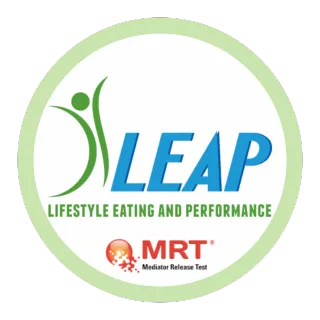What Is a Certified LEAP Therapist (CLT)?
A Certified LEAP Therapist (CLT) is a critical part of the healthcare delivery team. In fact, they are the only team member that can dramatically improve outcomes in a wide range of chronic health problems such as irritable bowel syndrome, Crohn’s disease, ulcerative colitis, migraine and other chronic headaches, fibromyalgia, eczema, urticaria, rheumatoid arthritis, PCOS, and a number of other illnesses related to food sensitivities. Their impact covers almost every specialty of medicine.
A CLT receives advanced clinical training in managing adverse food reactions with an emphasis on food sensitivities.
CLTs apply that knowledge by using the LEAP protocol – an evidence-based and highly effective eating plan for food sensitivity related health problems. LEAP utilizes the patented Mediator Release blood Test (MRT) to help uncover food and chemical sensitivities, not IgE allergies or IgG immune responses. Going far beyond avoidance or elimination diets, the LEAP Protocol is more practical and suited to the clinical realities of food sensitivities. Therefore, the CLT is able to routinely achieve rapid and dramatic clinical improvements, often when conventional therapies have failed.
CLTs play a prominent role in treatment, make a significant positive impact to the health and quality of life of their patients, and relieve a massive burden to the health care system.
The work CLTs do is 100% Evidence-Based!
"It’s Not What You’re Reactive to…It’s What You’re Not Reactive to."
How do food sensitivities cause inflammation?
Sensitivities are complex non-allergic, non-celiac inflammatory reactions that can involve both innate and adaptive immune pathways. Various triggering mechanisms trigger reactions in white cells leading to the release of proinflammatory and proalgesic mediators, such as cytokines, leukotrienes, and prostaglandins. Mediator release and cellular reactivity ultimately results in subclinical and clinical inflammatory effects manifesting in a variety of clinical conditions and symptoms

"As a Registered Dietitian Nutritionist, adding MRT testing to my practice has been a game changer. My patients with IBS, migraines and PCOS have seen amazing improvements. I am so glad I did the course and became a Certified LEAP Therapist."

